Zero Stimulation Rest

Well, April came & went with hardly a peep from me (unless you were a Nerd Notes subscriber…). In part that was because there was no Pokemon tournament to write about and to force a reflection on play. In part that’s because I was in deep focus mode on a bunch of other projects in April, and when I’d pop my head up I couldn’t quite get myself to focus in a way that leads to the production of the written word.
And some might say, “But Seth, that’s what the LLMs are for.” But my therapist would probably say, “Hey, that’s a sign that you need some zero stimulation rest.” This is also how you know that my therapist is a human and not an LLM, because if she were an LLM she would have said, “Wow - you’re such an ambitious go getter, always out there trying to do more. Maybe I can help you with some of that writing, and then we can plan out the next 30 days together” because the main feature of LLMs that other software should be integrating is the way that it gasses you up.
In some cases, zero stimulation means straight up zero - like a sensory deprivation tank or meditation. I find that what provides me with the deepest sense of rest is more of light stimulation - usually some sort of sustained engagement with a piece of media in which I can set the ball in motion and not have to make any major decisions for a while (this, BTW, is the main reason I find something like TikTok to not be very restful…so many micro decisions.)
So, to get back on the horse this month here’s what I’m going to do: I’m going to share some of the media I’ve been digging into lately and escalate it from “basically 0 brain stimulation” up to “kind of heavy stuff.”
Effectively 0 stimulation
- The Legend of Ochi soundtrack - I’m a big fan of the Dirty Projectors and of film scores, so when David Longstreith does the score for a film I’m going to listen to it. I don’t have any particularly strong memories of this album, despite having listened to it several times. It’s pleasant - wonderful to just put on and chill.
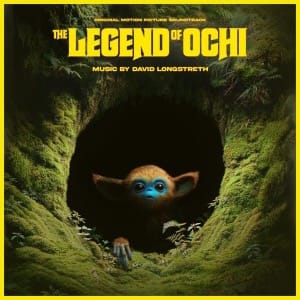
- Einstein on the Beach, Philip Glass - this sits a notch above because Glass’s work is so novel that you’ll at least listen to it and wonder a few times at what he’s doing. If you’re super into classical music or modernism, then this could sit several notches higher because there’s a lot going on. But you can also just decide to listen to it and have a bit of an aural feast.
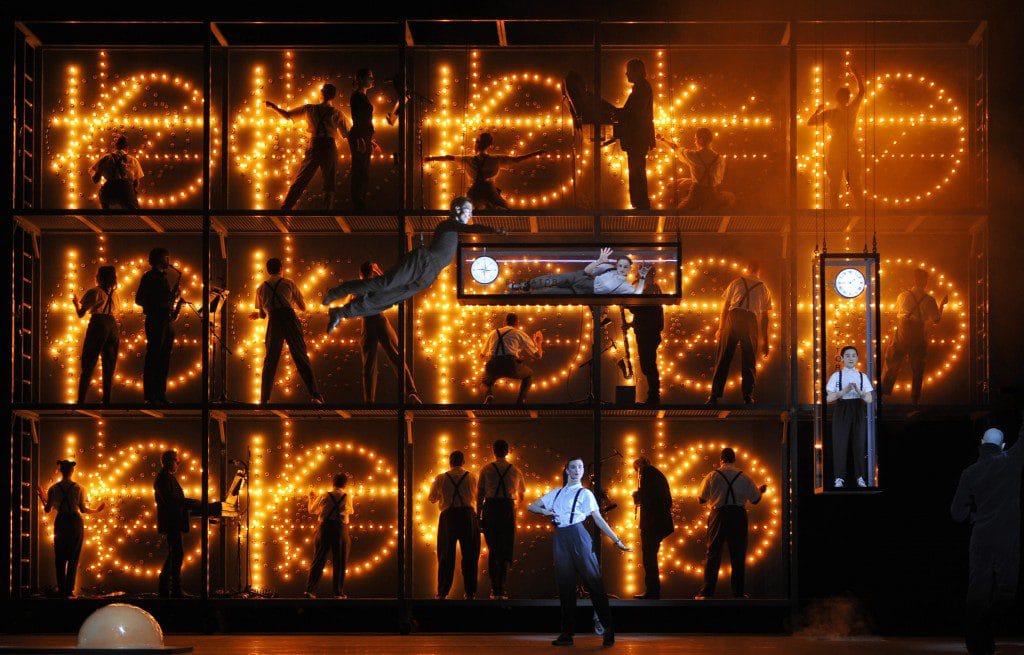
A bit of a lift
- Orbital, Samantha Harvey - this book one the Booker Prize last year, which given past winners - including one that is going to show up much further down this list - might make you think it’s heavy. But it’s not! Both literally and figuratively! It’s only ~150 pages, and the subject matter is just a day in the life of 6 astronauts (technically 4 astronauts & 2 cosmonauts) occupying the International Space Station through the 16 orbits they make around the planet. And this is where I need to declaim that “not heavy” /= “not good.” Because this book was so good. It has this languid pace that feels like it immerses the reader in the quotidian experience of the space crew, and Harvey lets herself be discursive and follow all kinds of tangents about space exploration more broadly and how it relates to the human experience. I found it very leisurely to read a book that wasn’t at all driven by narrative.
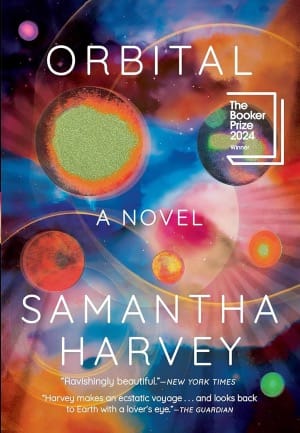
Some residual lift
- Six - you may want to quibble with me and insist that Orbital and Six should flip spots, but I will hold down for the fact that the cast album for this musical requires mental exertion because the whole thing is nothing but earworms that you will have to work pretty hard to get out of your brain…and you’ll exorcise one only to find that another one has taken its place. And then if you’re a history nerd, you’ll also find yourself going down a bunch of rabbit trails to better understand how historically accurate the portrayals are.
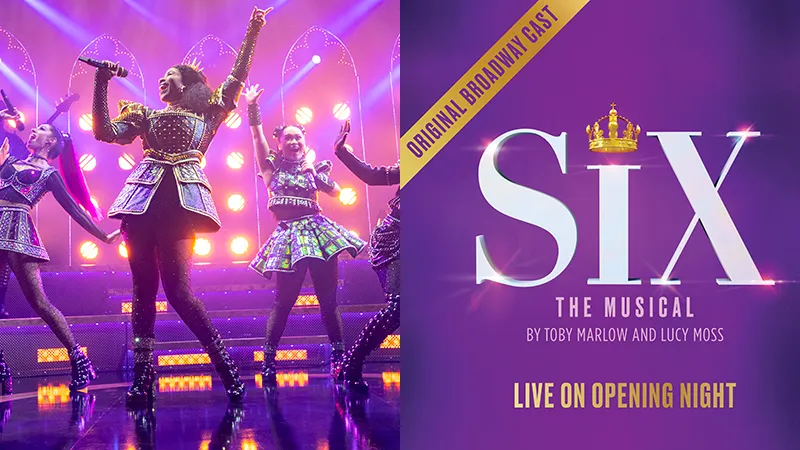
- Hyperfixed & Search Engine - in the same way, you will probably find yourself thinking about the best episodes of these 2 podcasts long after the outro music ends. I’ve grouped them together not just because of the shared phenomenon but because they have a shared background, which I will now recount. There once was a podcast called Reply All, which was one of my favorites of all time. It was hosted by Alex Goldman and PJ Vogt and concerned itself largely with internet culture. And then it ended - a tangent I will choose not to go down - and then a few years later, first PJ and then Alex came back each with their own new podcast, each of which involved a listener bringing a complicated question that the host & their production team would chase down. These are not the same show, mind you, but they are remarkably similar. You can start anywhere with these, but my most memorable episodes have been "What's Actually on Teenager's Phones?" and "Casey Wants To Believe."
- A tangent I will follow: I don’t think you can talk about this genre of show without also shouting out Starlee Kine’s Mystery Show, to which they all owe a massive debt and which remains the best example of the genre and one of the all time great limited series podcasts (even if it wasn’t intended to be).
This one needs its own category
- Side Quest - and of this 4 episode mini-TV series, I would say episodes 2 & 3 are the standouts. You can skip 1 & 4 if you want. They’re totally fine, but not revelatory in any way. Episodes 2 & 3 are fantastic. Side Quest is a cool idea: it’s a series of half hour, self-contained stories that all exist within the Mythic Quest cinematic universe. The show is another piece of evidence that Mythic Quest as a whole is about more than just games but about creative work and the creative process in general. Episode 2 is about 1 day in the life of a black-owned comic book store where the regulars are waiting for the arrival of a long-anticipated issue of the Mythic Quest comic. Episode 3 is about a cellist in a traveling orchestra led by the composer of Mythic Quest’s music. The 2 episodes are remarkably different from each other, but both are so enjoyable.
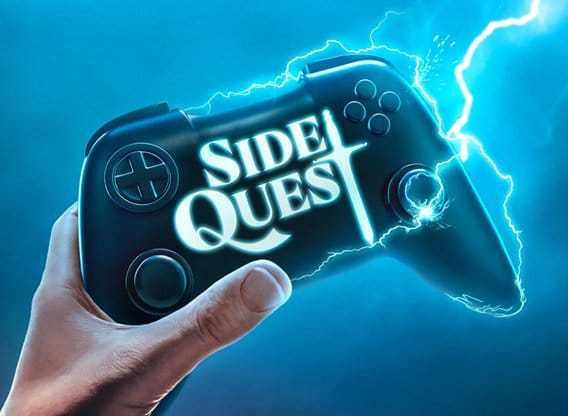
- And, OK, let me just go on a tangent again: I binged all 4 seasons of Mythic Quest between January and April of this year. It’s uneven as a whole, but I stuck with it because there’s something they got so right in the creative partnership between Ian and Poppy and the way that vision & craft need each other. But I also want to offer up another piece of evidence that the show is really about creative work and the creative process: one of the small delights of the later seasons is seeing how often episodes were written or directed by a member of the cast - and especially by the members of the cast who weren’t particularly established before the show. It leads me to believe that the show was deliberate about nurturing creative growth. I’m here for that.
- And another totally unrelated tangent that I’m going to totally indulge: Apple TV+ has carved out a reputation as a place that develops shows that will have staying power. I remember several years ago hearing David Simon - the creator of The Wire, aka the single greatest television show of all time and nothing in the past decade and a half has made me think any differently about that claim - talk about how people who thought that his job was to make blockbuster television had a fundamental misunderstanding, because his job was to make shows that people would still be watching in 10 or 20 years and that might take a little bit of time to get in the black, but once they did they’d keep earning for years. That in the streaming era, he was making the shows that keep people from canceling their subscriptions because they will always want to come back to that show. Apple TV+ seems to have made that their strategy. They don’t release nearly as many shows as other streamers, and not every one of them is an absolute gem, but their conversion rate is arguably the highest in the business (HBO also gets consideration here, but they also release a lot of flashes in the pan).

Heavier Lifts
- Things Become Other Things (Random House edition) - this is your semi-annual reminder that I am a Craig Mod True Fan and will buy everything he releases, including this massively reworked version of his self-published fine art book. This version shifts the focus more to his relationship with his childhood best friend and with his adult mentor, and his reflections on the broken social systems that ruined the former and the functional ones that made possible the latter. Not everyone is a Craig Mod True Fan, but if you don’t know whether or not you are then this is a fine place to start.
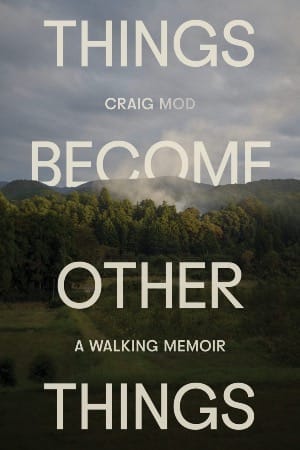
- Balatro - caveat: after you’ve played it for 10 hours. I thought I had avoided the Balatro Bug. A few friends recommended it to me, so I played a little bit and was not hooked. It was fun enough that I was fine to come back to it and play a run every once in a while, but I didn’t see why people compared it to an addictive substance. Then, at some point, a switch was flipped and suddenly I was playing for an hour or two at a time, testing & developing different strategies for different decks, chasing crazy endless runs, and trying to figure out what I hadn’t unlocked yet. I wouldn’t say I’m addicted, but there are definitely some Balatro-coded synapses in my brain.

You’re Gonna Wanna Be In The Right Head Space
- Prophet Song, Paul Lynch - the year before Orbital won the Booker, the honor went to Prophet Song. While both take place in a not-too-distant future, these are 2 very different books…though I find myself thinking about both of them several times a week since finishing them. Unfortunately, the reason I find myself thinking about Prophet Song is because of the sad number of real world parallels. Very simply put, Prophet Song is about a dystopian Ireland under authoritarian rule and how one woman reacts after her husband is disappeared. It’s literary fiction but feels reminiscent of the way that Margaret Atwood took most of what happens in The Handmaid’s Tale from things that had actually been done to women in the world. The more literary flourishes came in the way that Lynch had each character act as an archetype for the various responses to authoritarianism.
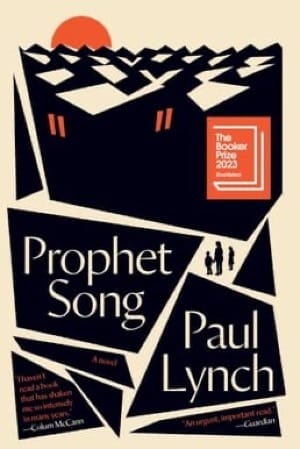
- And while I didn’t read it recently, I couldn’t help feeling that Prophet Song owes a tremendous debt to Nathan Englander’s The Ministry of Special Cases. It is a similarly jarring read, but the chapter in which an imprisoned character discovers the “caramels” that previous inmates has left behind remains some of the most beautiful prose I’ve ever read.
We’re back on the Pokemon grind this weekend. For our final event of the season, we get a home tournament right here in Utrecht. It took me a while to find a deck I was excited about playing, but I have one - and as fate would have it, both kids are just as excited about the same deck. So we’ll all be playing the exact same 60 cards in our respective decks. We’re locked & loaded & ready to go.
So you should hear from me sooner than later…



Member discussion